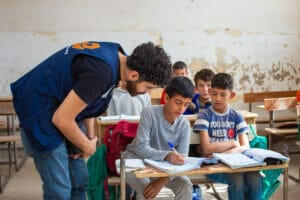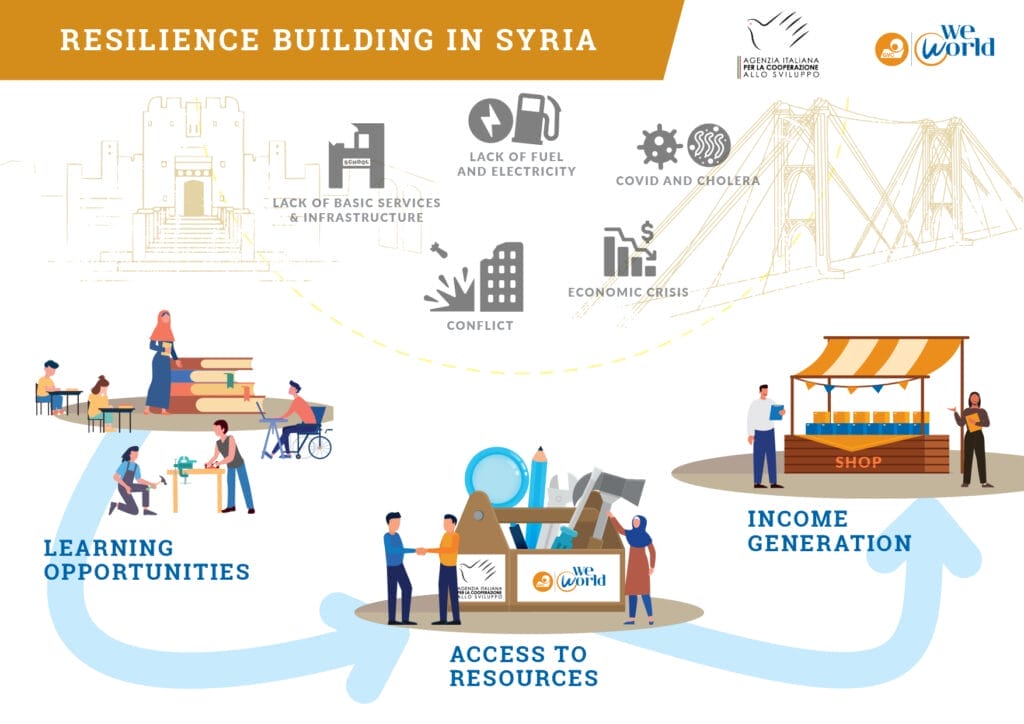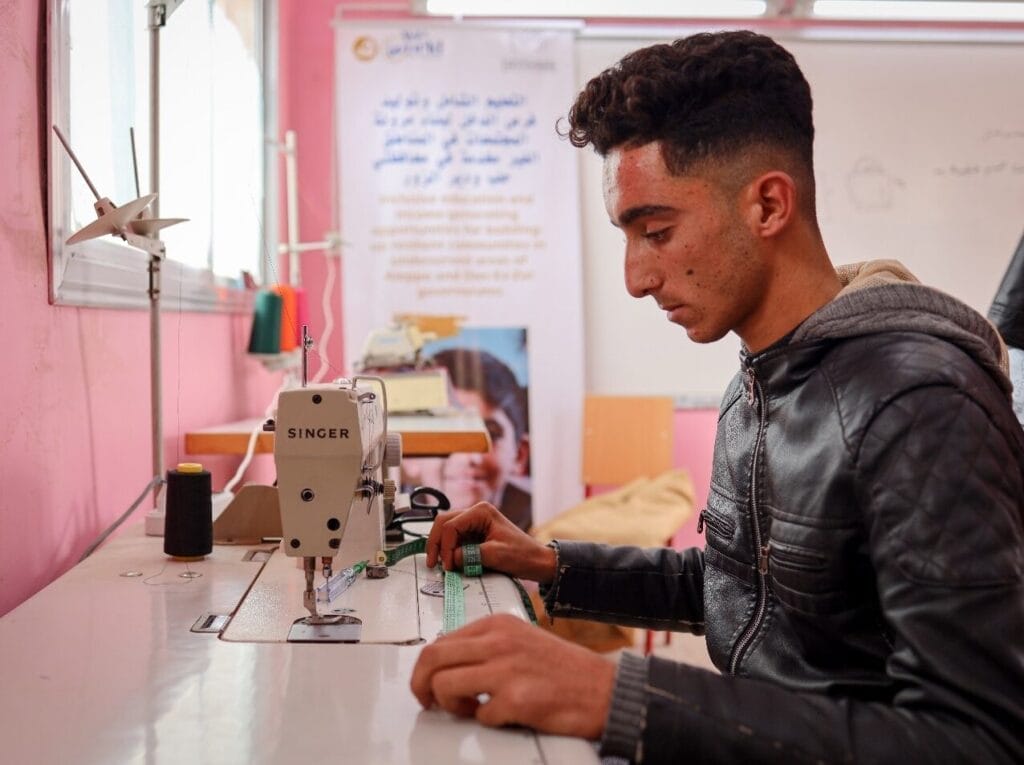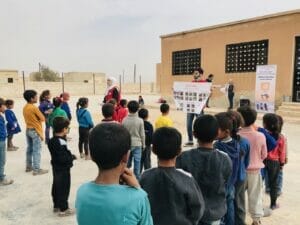
The Syrian conflict has had devastating effects on the national education system. It has denied access to education to millions of children during a crisis that has endured for nearly 12 years. A large part of the population, who is now between 16 and 19 years old, at the eruption of the crisis was at the beginning of their education path. They currently account for 37.8 per cent of those who are not attending school and are school-aged, and lack the training they need to pursue a specific profession. Also young people between 20 and 30 years old, who acceded the labour market in a context of strong mass migration, displacement and violence, are facing similar challenges. The recent earthquakes have worsened the situation.
In such a framework, many find themselves mostly in low-paid daily and occasional jobs, especially in the commercial and agricultural fields. This condition increases the economic vulnerability of families who are therefore unable to meet the costs for the education of their children. This issue is most frequent in rural areas, where opportunities for employment, training and experience are even more limited.
For this reason, WeWorld's commitment to providing equitable and safe access to educational services in rural Aleppo and Deir-ez-Zor also involves actions to strengthen vocational skills and increase opportunities to start income-generating activities for young people in the communities where we work, with a particular focus on households with children out of the formal education system or at risk of school dropout. This intervention enables the creation of virtuous circles: filling educational gaps and boosting the economic situation of individual families and territories, to also increase schooling opportunities for children in the same families and communities.
As part of the project funded by the Italian Cooperation, WeWorld is selecting 200 young people, 100 women and 100 men, between the ages of 16 and 30, who are excluded from the labour market, as recipients of vocational training and self-entrepreneurship courses in the rural areas of Aleppo and Deir-ez-Zor, with a focus on the most vulnerable families.
The courses were defined according to the vocational aspirations prevalent in the targeted areas among people in the same age group as the beneficiaries. Upon completion of the courses, the participants receive a kit containing materials and tools to start up their own business without incurring additional expenses. Furthermore, they are also accompanied in job searching and contacting local companies.
Among the students who completed the first rounds of courses, positive stories already emerged.
Zalkha is 30 years old and has six children. She lives in the Dayr Hafer rural area in the Aleppo governorate, where the crisis impacted the quality and availability of young people's jobs. Due to the conflict, she lost her husband and had to move several times with her family. After hard and long years, they could finally return to their home in Al-Ahmadia. However, Zalkha never had a chance to learn a profession and could not find a job to afford to send her children to school. She was contacted by WeWorld to understand why her children were out of school and , given her situation, was selected to participate in vocational training to become a tailor. Ammar, a 19-year-old from the village of Abaja, participated in the same course. Until recently, he thought he could only work in agriculture, like his parents and siblings. He always considered himself unlucky to be born in Abaja, wishing he could do something else.
Now that both have completed the course and received their sewing machines, they are ready, along with the other participants, not only to start their businesses to support their families, but also to fulfill themselves through their profession.
"I felt that my low level of education made me inefficient in working and earning for my family. However, after participating in the tailoring training organized by WeWorld, I acquired many skills that are of great help, along with the sewing machine. Now I am able to sew clothes and earn money to support my family and raise my children better. Before taking the course, I knew some stitching, but now I have become a perfect seamstress. People appreciate my work and recommend others to have their clothes made by me," Zakhla says.
Thanks to the intervention of WeWorld and of the Italian Cooperation, the young people who participated in the courses along with Zakhla and Ammar can present themselves to the local companies and market with the educational and technical background necessary to carry on their professional activities. In order to tackle school dropout, it is vital to act on one of its most immediate causes, which is itself a consequence of the war and its effects: the difficulty and fragility of the economic conditions of Syrian families.




